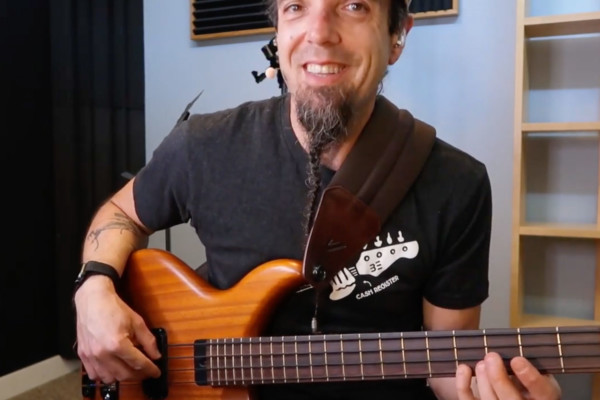Ask Damian Erskine: Teaching (Part 2)
Q: I am interested in finding out how to get into teaching. For example: What do you recommend about knowledge of theory, scales, modes, etc.?
A: This is kind of an interesting one… Of course, the more you know the better (as a player or teacher), but many do fall into a bit of a trap with the “but do I know enough to teach anyone?” question.
I have met a lot of players I greatly admire who shy away from teaching out of fear. It may be fear of a student asking a question that they don’t know the answer to, fear of a student playing better than they do… basically, it’s a fear of inadequacy.
There are two lessons I’ve learned that have helped me immensely with my ability to teach
1. You’re not supposed to know everything! The amount of stuff you don’t know will always greatly outweigh the stuff that you do know.
Sometimes, having a student ask a question you don’t know the answer to can be a blessing. It forces you to work through the problem in the moment and this can be an even greater learning experience for the student. Don’t try and play it off.Be honest and admit that you’re temporarily stumped (which will also serve to give them a feeling of accomplishment by asking a great question). Now, work through the process of discovery with the student. In essence, teach them to fish instead of just handing them a meal.
2. Everyone has something to offer. Students might run circles around a teacher in one way or another (soloing over bebop changes, knowledge of advanced theory, slapping), but there’s still an opportunity for the teacher to teach. Feel free to explore your strengths as a player and share information freely.
I have always felt that I was a student and not a teacher. Once I forced myself to try and teach out of financial necessity, I discovered I learn more from teaching than I ever did studying and that I actually know a lot of things. I’ve taken some of my knowledge for granted until a student asked, “What was that?”
Use teaching as a means of personal growth and explore what you don’t know with the same vigor that you explore what you do know.
Now, I would certainly recommend that anybody exploring a gig as a teacher should brush up on some theory and really try and develop some sort of lesson plan.
I like to prod until I discover what my students goals are for the instrument and then work backwards with a lesson plan. For example:
If they want to achieve “D”, they will need to have a thorough understanding of A, B and C.
So develop a plan that functionally addresses the steps to achieve those goals.
Teach each student differently. Some people learn better through analysis, some through mimicry, some by transcription, some by dialogue, and so on. Also, every student doesn’t necessarily need the same exercises as your other students. Tailor lesson plans to the individual needs of the student.
If somebody needs help with something you can’t help them with and you can’t figure it out for yourself, simply refer them somewhere else for the knowledge (whether it’s a lesson posted online about that topic, a podcast or even a better teacher. It’s okay).
I hope that helps. The more you know, the more you have to offer but knowledge isn’t the only piece of the puzzle.
Have a question for Damian Erskine? Send it to [email protected]. Check out Damian’s instructional books, Right Hand Drive and The Improviser’s Path.



